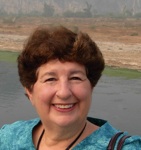Caviar, the snack of czars. The word symbolizes luxury food at its most expensive.
Caviar– and the money to be made from selling it—was behind a two-year undercover investigation and sting by conservation agencies. That operation ended on March 13 -14 with more than 100 citations and arrests of suspects from Missouri. In addition, eight men of eastern European descent, seven from out of state, were federally indicted for interstate trafficking of poached wildlife products. The wildlife in question is the paddlefish, native to Missouri and surrounding states.
About 85 Missouri Department of Conservation (MDC) agents worked with about 40 agents from the U. S. Fish and Wildlife Service, with cooperation of local law enforcement from Benton County, MO and conservation agents from sixteen other states.
The story rivals any good suspense novel where money is the motive.
Continue reading Missouri conservation agents say they have nailed caviar crooks in Ozarks

 Because the same amount of water will be needed to support agriculture for 2.7 billion more people by 2050, water is increasingly being viewed as a finite natural resource that must be carefully managed. It is estimated that by 2025, two-thirds of the world’s population could be living under the stress of water scarcity.
Because the same amount of water will be needed to support agriculture for 2.7 billion more people by 2050, water is increasingly being viewed as a finite natural resource that must be carefully managed. It is estimated that by 2025, two-thirds of the world’s population could be living under the stress of water scarcity.